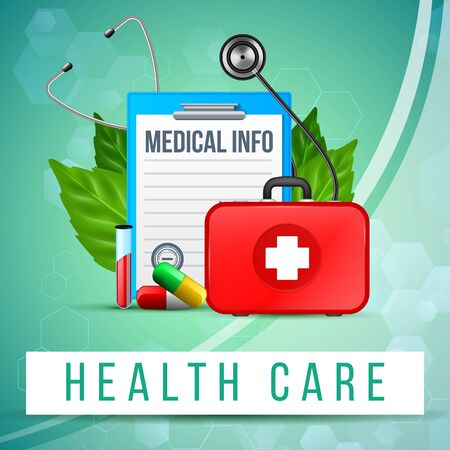Understanding Pimples: Causes and Myths in India
Pimples are a common concern for school and college students across India, often causing stress and lowering confidence. In the Indian context, several factors contribute to pimples among teenagers. Hormonal changes during puberty are a primary cause, leading to increased oil production that clogs pores. The hot and humid climate in many parts of India can worsen this by making skin oily and sweaty. Additionally, pollution and dust in crowded cities further irritate sensitive skin.
Many myths about pimples persist in Indian homes and communities. A popular belief is that eating oily foods like samosas or spicy snacks directly causes pimples. While diet can influence skin health, no single food is solely responsible for breakouts. Another myth is that only those who do not wash their face get pimples, but over-washing or using harsh soaps can actually make pimples worse. Some also believe home remedies like applying toothpaste or turmeric will cure pimples overnight, but these methods may irritate the skin further.
Understanding the real causes—like hormones, genetics, pollution, and skincare habits—helps Indian students manage pimples better. Avoiding misconceptions passed down through generations is important for effective pimple management and building healthy skin routines.
2. Daily Skincare Basics for Indian Skin
When it comes to managing pimples, a simple and consistent skincare routine is key, especially for school and college students in India. Indian skin types vary from oily to combination and are prone to issues due to humidity, heat, and pollution. Choosing the right homegrown products that are easily available can make a big difference. Here’s a straightforward daily skincare routine tailored for Indian climatic conditions:
| Step | Product Suggestion | How to Use |
|---|---|---|
| 1. Cleansing | Besan (gram flour) or a mild herbal face wash | Wash your face twice a day to remove excess oil, sweat, and dirt. |
| 2. Toning | Rose water or cucumber juice | Dab gently on the face with a cotton pad to refresh and soothe the skin. |
| 3. Moisturising | Aloe vera gel or light, non-comedogenic moisturiser | Apply a thin layer after cleansing and toning, even if your skin is oily. |
| 4. Sun Protection | Sunscreen suitable for Indian skin (SPF 30+) | Apply before stepping out in the sun, reapply if needed throughout the day. |
In addition to these basics, avoid harsh scrubs and heavy creams that can clog pores. Stick to natural ingredients like neem, turmeric, and sandalwood when possible, as these are trusted remedies in Indian households for generations. Remember, consistency is crucial—following this routine daily can help keep pimples at bay and maintain healthy skin amidst India’s challenging weather conditions.

3. Diet and Hydration Tips: Indian Foods for Clear Skin
Maintaining a healthy, pimple-free complexion is not just about what you apply on your skin, but also what you put into your body. School and college students in India can take advantage of the diverse and nutritious foods found in our local cuisine to support skin health.
Eat More Fruits and Vegetables
Include plenty of seasonal fruits like papaya, guava, oranges, and mangoes, which are rich in vitamins A and C. These nutrients help repair skin tissues and fight free radicals. Leafy greens such as spinach (palak), fenugreek leaves (methi), and amaranth are packed with antioxidants that keep your skin clear.
Choose Whole Grains Over Refined Ones
Swap out maida-based snacks for whole grains like brown rice, whole wheat chapati, millets (ragi, bajra), and oats. Whole grains have a lower glycemic index and help prevent blood sugar spikes that can worsen pimples.
Include Natural Probiotics
Dahi (curd) is a staple in many Indian meals and is an excellent source of probiotics, which help maintain gut health and reduce inflammation that may lead to pimples.
Avoid Oily and Sugary Foods
Limit consumption of deep-fried snacks like samosas, pakoras, and chips, as well as sweets high in sugar such as jalebi or gulab jamun. These can trigger excess oil production and breakouts.
Stay Hydrated With Traditional Drinks
Drink plenty of water throughout the day. You can also include refreshing Indian drinks like nimbu pani (lemon water), coconut water, or buttermilk (chaas) to stay hydrated while providing your body with additional vitamins and minerals important for skin health.
Tip:
Avoid excessive intake of aerated drinks or packaged juices as they are high in sugar. Instead, opt for homemade fruit juices or herbal teas like tulsi or ginger tea for better skin.
4. Safe Home Remedies: What Works and What to Avoid
For many Indian students, turning to home remedies for managing pimples is common due to easy access and cultural trust in traditional solutions. While some ingredients are both effective and safe, others may cause irritation or worsen the condition. Let’s look at which popular remedies work and which should be approached with caution.
Popular Indian Home Remedies for Pimples
| Remedy | How It Works | Precautions |
|---|---|---|
| Neem (Indian Lilac) | Antibacterial, helps reduce inflammation and fights acne-causing bacteria. | Avoid if you have sensitive skin; always do a patch test first. |
| Turmeric (Haldi) | Anti-inflammatory and antiseptic properties can calm active pimples. | Use pure turmeric in small amounts; avoid if you’re allergic. |
| Multani Mitti (Fuller’s Earth) | Absorbs excess oil and cleans pores deeply; gives a cooling effect. | Do not use more than twice a week as it can dry out your skin. |
Unsafe Practices to Avoid
- Applying toothpaste on pimples: Contains harsh chemicals that can irritate Indian skin types.
- Lemon juice directly on skin: Highly acidic and can cause burns or dark spots, especially on brown or dusky skin tones.
- Popping or squeezing pimples: Increases risk of infection and scarring, leaving permanent marks which are harder to treat in melanin-rich skin.
Tips for Using Home Remedies Safely
- Always perform a patch test before using any remedy on your face.
- If you notice increased redness, burning, or itching, discontinue use immediately.
- Remember that natural does not always mean safe; consult a dermatologist if you are unsure or if pimples persist.
By choosing the right remedies and avoiding unsafe practices, students can manage pimples more effectively while keeping their skin healthy.
5. When to See a Dermatologist: Indian Context
For many students in India, pimples are a common part of growing up. While most breakouts can be managed with basic home care and over-the-counter products, there are certain situations when it’s important to seek professional help from a dermatologist. Recognising these signs early can help prevent long-term skin issues and boost your confidence.
Signs You Should Consult a Dermatologist
- Pimples Not Improving: If your pimples do not improve after 2-3 months of regular home care and pharmacy products, it might be time to consult an expert.
- Severe or Painful Acne: If you experience cystic acne (large, painful, red bumps), pus-filled lesions, or widespread breakouts across your face, back, or chest, professional treatment is recommended.
- Scarring or Dark Spots: If your pimples are leaving marks, scars, or dark spots (common for Indian skin), a dermatologist can provide targeted solutions to reduce pigmentation and prevent further damage.
- Sudden Onset: A sudden increase in acne could be due to hormonal changes, stress from exams, or even reactions to specific foods. A doctor can help identify the root cause.
How to Approach Dermatology as a Student in India
- Talk to Your Parents or Guardians: Many students feel shy discussing skin issues. Remember, seeking help is normal and important for your well-being.
- Visit Government Hospitals or College Clinics: If budget is a concern, most cities have government hospitals with dermatology departments that offer affordable consultations. Some colleges also have tie-ups with clinics for student health.
- Cultural Sensitivity: In India, skin concerns can sometimes carry social stigma. Don’t let this stop you—healthy skin is for everyone! Encourage friends and classmates to support each other in seeking medical help if needed.
Conclusion: Early Help Makes a Difference
If you notice persistent or worsening pimples despite your best efforts at home, don’t hesitate to reach out for professional advice. Taking action early can save you from more serious skin problems in the future—and give you back your confidence for school and college life!
6. Dealing with Stress and Peer Pressure
For many school and college students in India, managing studies, family expectations, and friendships can be quite stressful. This stress, combined with peer pressure to look good or fit in, can sometimes make pimple problems worse. It’s important to remember that everyone faces these challenges at some point, and you are not alone.
Understanding the Connection between Stress and Pimples
When you feel stressed—maybe during exams or when dealing with social situations—your body produces more hormones like cortisol. These hormones can trigger your oil glands to produce more oil, which may lead to clogged pores and more pimples. Recognising this connection is the first step towards managing it effectively.
Tips for Managing Stress
- Practice deep breathing: Simple pranayama or deep breathing exercises can calm your mind and reduce stress levels.
- Stay active: Regular exercise, such as yoga or even a short evening walk, helps release tension and improve your mood.
- Get enough sleep: A proper sleep schedule keeps your body balanced and supports healthy skin.
Dealing with Peer Pressure
- Be confident in yourself: Remember that pimples are natural and common among teenagers and young adults. Don’t let others’ opinions lower your self-esteem.
- Select good company: Surround yourself with friends who support and uplift you rather than those who judge based on appearance.
- Avoid unhealthy remedies: Sometimes friends might suggest harsh treatments or home remedies that may not be suitable for your skin type. Always choose gentle care products suitable for Indian skin.
If You Need Support
If you ever feel overwhelmed by stress or pressure, talk to someone you trust—a parent, teacher, or school counsellor. Sharing your feelings can make a big difference. Remember, taking care of your mental well-being is just as important as caring for your skin.

